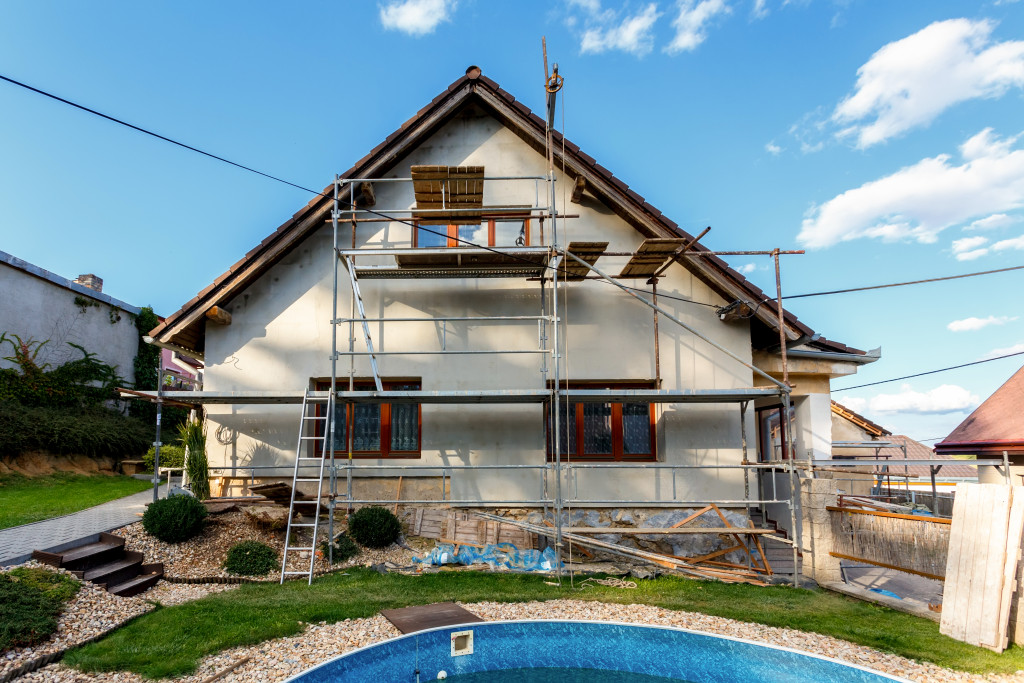- High utility bills often result from inefficient appliances, improper air ducts, and poor insulation.
- Investing in energy-efficient appliances, proper duct maintenance, and quality insulation can reduce costs.
- Old windows and incandescent light bulbs contribute to energy inefficiency, making upgrades beneficial.
- Phantom energy loss, where appliances use energy even when off, can be mitigated for further savings.
Are you tired of constantly shelling out money for utility bills? Do you feel like your bills are too high, but you’re not sure why? You’re not alone. With the rising cost of living, it’s becoming increasingly important to save money wherever you can. This blog will explore unseen factors that may be hiking your utility bills. You will also learn about home improvements that can help lower your bills and make your home more energy-efficient.
Inefficient Appliances
Your home appliances may be the culprit behind high utility bills. Old or inefficient appliances can use up a lot of energy, which can add up over time. Consider investing in energy-efficient appliances such as refrigerators, washing machines, dryers, and dishwashers. These appliances may cost more upfront, but they can save you money in the long run.
Improperly Functioning Air Ducts
Another unseen factor that could be causing your utility bills to skyrocket is improperly functioning air ducts. Improperly installed or damaged ducts can lead to an increase in energy use, which means higher utility bills.
If you’re not sure whether or not your ducts are properly sealed and insulated, it might be a good idea to get them checked out by a professional air duct repair and sealing service provider. They can inspect your ducts and make sure they’re adequately insulated so that you won’t be wasting energy unnecessarily.
Poor Insulation

Poor insulation can cost you a lot of money in heating and cooling bills. If your home is not insulated correctly, hot or cold air can escape through cracks or gaps, causing your heating or cooling system to work harder.
Consider upgrading your insulation to help keep your home at an even temperature and reduce the strain on your HVAC system. And make sure you choose the right insulation material for your home. Here are a few of the best insulation materials you should consider:
Fiberglass Batts
This is the most common type of insulation and is made from fiberglass. It’s easy to install and is relatively affordable. Fiberglass batts are best for walls and attics.
Closed-Cell Spray Foam
This type of insulation is sprayed into place, providing an airtight seal that keeps hot or cold air from escaping. It’s an excellent option for hard-to-reach areas, such as around pipes and other fixtures.
Cellulose Insulation
This is made from recycled paper and is excellent for soundproofing. It also has a high R-value, which means it’s great for keeping the temperature in your home consistent.
Rockwool Insulation
Rockwool is made from volcanic rock and is excellent for both soundproofing and insulation. It also holds up well against fires, making it a great option if you’re worried about safety.
By insulating your home correctly, you can save a significant amount of money on your monthly utility bills.
Old Windows
Old windows can also be a source of energy loss. They may not be adequately sealed, and they may not be energy-efficient. Upgrading your windows to double-pane or triple-pane windows can improve your home’s energy efficiency and lower your bills in the long run.
Incandescent Light Bulbs

Incandescent light bulbs are energy hogs. Replacing them with energy-efficient LED bulbs can significantly reduce your electricity bills in the long run. LED bulbs consume less energy and have a longer lifespan, which means you won’t have to replace them as often. You can also consider installing motion sensor light switches to save on energy costs.
Phantom Energy Loss
Did you know that even when your appliances are turned off, they may still be using energy? This is called phantom energy loss, and it can cost you a lot of money over time. You can prevent phantom energy loss by unplugging appliances when they’re not in use, using power strips, or investing in smart-home technology.
Being mindful of energy consumption in your home is economically and environmentally beneficial. Paying attention to unseen factors such as the efficiency of your appliances, the condition of your air ducts, the insulation in your home, the age and quality of your windows, the type of light bulbs you use, and the phantom energy loss can significantly reduce your utility bills.
By making the necessary home improvements, not only will you save money in the long run, but you’ll also contribute to a greener planet. Remember, every little bit counts when it comes to energy conservation. Start implementing these changes today, and watch your utility bills drop!



